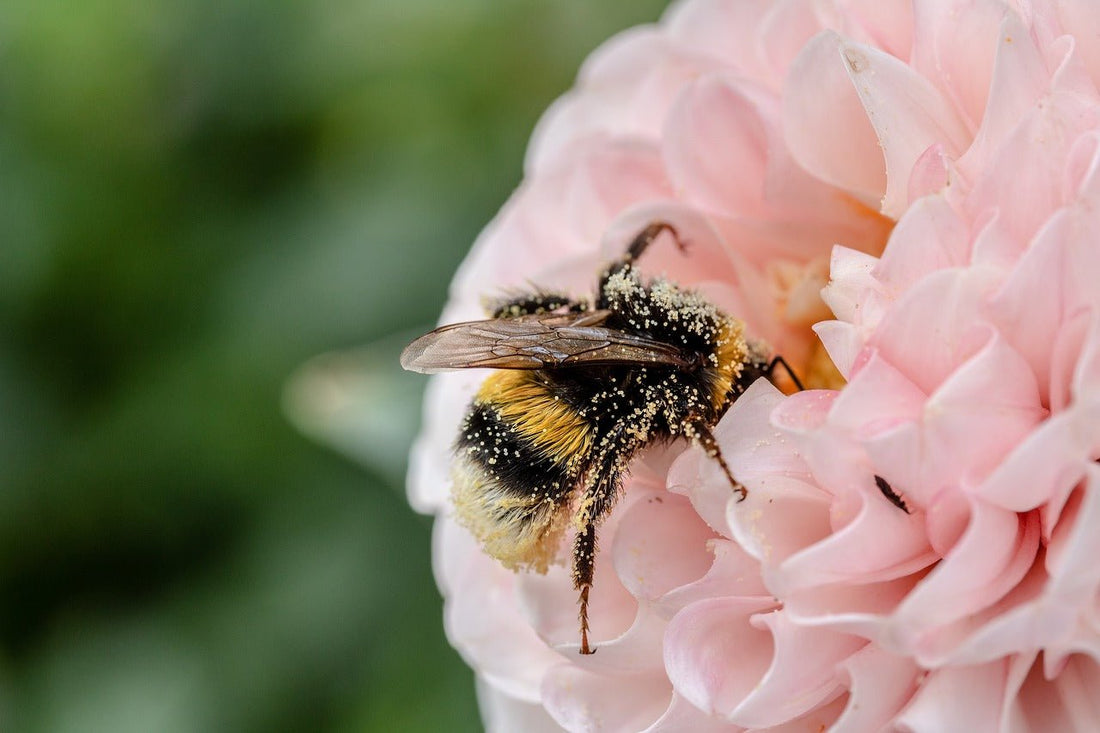
Is This the Bees' Needs? Understanding What Bees Really Need
Share
Monday, 10th November 2014
Things that sting aren't generally welcome - so why do bees matter so much to us? And could the Government's new pollinator strategy be the good news bees have been waiting for?
https://www.youtube.com/watch?v=7uVeyH7XQXg
First things first though, why do bees matter?
Bees matter to us because they're pollinators. When they go about their daily business, eating pollen and nectar from flowers, some of the pollen sticks to their bodies and is gradually transferred from flower to flower, which fertilises the plants. This natural process is called pollination, and it's how plants are fertilised. Without bees, without this natural fertilisation process, we wouldn't be able to grow many fruits and seeds.
Bees, however, aren't the only pollinators; other insects play an important role in pollination and Defra report, "at least 1500 species of insect pollinators in the UK. The honey bee lives in hives managed by beekeepers. Others, like many bumblebees, solitary bees, moths, butterflies and hoverflies are wild pollinators."
So that's why pollinators matter so much to us; we rely on them to pollinate our food.
The bad news is that pollinators may be in decline. Measuring the acuteness of this 'decline' in numbers is a challenge; it's not quite as simple as holding the annual Big Garden Bird Watch for example. Although we don't exactly know (for good reasons) how many pollinators we have in the UK, we are able to take readings to support the warnings that pollinators are in decline; for example, according once again to Defra: "We do know that of the 26 bumblebee species in the UK, two have been declared extinct over the last century, and another six are now found in a much smaller area of the country. Recently however, one new species has arrived and another is being re-introduced."
"We also know that although the total number of honey bee colonies has increased over the last few years, along with the number of beekeepers, beekeepers reported losing a third of their colonies over the winters of both 2007 and 2012. This is a greater loss than is usually expected. However, unlike wild pollinators, these managed honey bees can be replaced when colonies are lost. Overall, our interpretation of the evidence is that wild bees and other pollinators are generally less abundant and widespread than they were in the 1950s."
What's causing this decline?
Defra explain: "We know that pollinators face many threats, including habitat loss, disease, extreme weather, climate change and the use of some pesticides. While there are uncertainties about the impacts of these threats, overall the evidence suggests that it is probably the combination of these many threats that could be reducing populations of some species in the wild."
What can we do?
Defra offers a five point plan and encourages us to take action with them to help pollinators - "we can help to create or expand habitat for pollinators by taking action now."
1. Grow more flowers, shrubs and trees that provide nectar and pollen as food for bees and other pollinators throughout the year. Such as crocuses and pussy willow for the spring, ox-eye daisies for the summer, hebes for the autumn, and cyclamen in winter.
2. Leave patches of land to grow wild and weedy, with plants like stinging nettles to provide food sources for caterpillars, and breeding places for butterflies and moths.
3. Cut grass less often, ideally removing the cuttings to let plants flower
4. Avoid disturbing or destroying nests or hibernating insects, in places like trees, dead wood or walls
5. Consider alternative to pesticides where pollinators are active or nesting, or where plants are in flower. If you do choose to use a pesticide, always follow the instructions on the label. However many people avoid chemicals entirely by physically removing pests or using barriers to deter them.
Pollinators help us and together, we can help them.
You can read the Government's "pollinator strategy" online (click on the link below) - let's hope it's the good news bees have been waiting for...and that there are no stings in the tail (empty promises).
The National Pollinator Strategy: for bees and other pollinators in England
Online at, to https://www.gov.uk/government/publications/national-pollinator-strategy-for-bees-and-other-pollinators-in-england
Written by Simon H. King
